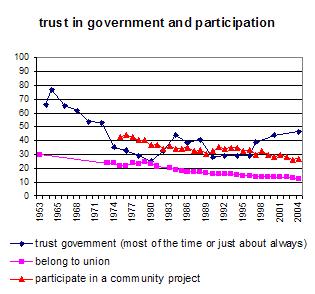Rose Marie Nierras and I have just published “Activists’ Views of Deliberation“, Journal of Public Deliberation (vol. 3, no. 1, article 4). We interviewed more than 60 practitioners from more than 20 countries to explore the tension between activism and deliberation and to propose some compromises.
We define an “activist” as someone who tries to advance a substantive political or social goal or outcome. A clear case would be someone who seeks government money for a new health clinic. Activism is always an attempt to exercise power, yet some activists’ motivations are highly altruistic. They try to develop and employ power for ethical ends. To complicate the definition, we note that many activists feel constrained by democratic procedures or principles. For example, they may drop their demands when they see that they have been outvoted or have lost a public argument. They may be sincerely interested in learning from rival perspectives; and they may try to help other people to become independent political agents with goals and interests of their own. In all these respects, activists can be democratic, not merely strategic.
Meanwhile, an organizer of a public deliberation is someone who helps people to decide on their collective goals and outcomes. A clear case would be someone who organizes a forum to discuss how much money the government should raise in taxes and how the funds should be spent. To organize such a deliberation means suppressing or deferring one’s own views about state spending in the interests of promoting an open-ended conversation.
Nevertheless, organizing a deliberation is also an exercise in power. It requires making substantive decisions that can be controversial. Even to invite people to a deliberative session, one must give oneself the right to define the scale and scope of the community, to identify certain issues as important, and to select a method or format for discussion. Even if the process is very open-ended, organizers may rationally predict that a particular outcome will emerge. In such cases, they may use deliberation as a tool to obtain support for the outcome they want.
In short, activists and organizers of deliberations are not sharply distinguishable. It is not only activists who have agendas, desired outcomes, and some degree of power. However, the two groups cluster at opposite ends of a spectrum. At one end, politics is strategic and oriented toward policy goals (albeit constrained by procedures or ethical principles). The main evidence of success is achieving the desired outcome. At the other end of the spectrum, politics is open-ended; the main evidence of success is a broad, fair discussion leading to a set of goals that may be unanticipated at the outset.
If one stipulates that an activist has the right agenda and fully appropriate plans, then it may seem unfair to saddle him or her with the norms of deliberation, which require listening to other people, providing neutral background materials, sharing control of the process, etc. But it is generally unwise to assume that one’s own agenda is right. The value of deliberation lies as much in the listening as in the speaking; as much in the opportunity to learn as the chance to persuade. Learned Hand said, “The spirit of liberty is the spirit which is not too sure that it is right; the spirit of liberty is the spirit which seeks to understand the minds of other men and women; the spirit of liberty is the spirit which weighs their interests alongside its own without bias.” That is the best argument for deliberation, although there is certainly also a case to be made for forceful political action.
